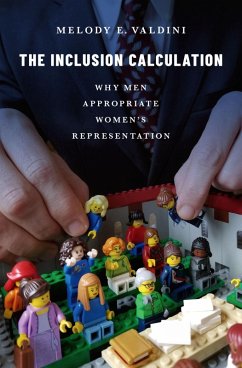What role do men play in women's political representation? When and why do they support more inclusivity for women in office? Given that all political parties today have men in a majority of leadership positions, male gatekeepers play a key part in women's representation. So, how are they responding to the increasing numbers of women who are seeking leadership roles in politics? In The Inclusion Calculation, Melody E. Valdini examines women's inclusion from the perspective of men in power and offers a novel approach to understanding differences in women's descriptive representation. This book argues that men facilitate women's entry into politics when women's presence promises to benefit public perception of a party, and therefore benefit male party leaders. One particularly disturbing implication of this argument is that leaders can increase the number of women in office as a quick and simple substitute for addressing real systemic failures in party organization. Valdini tests her hypotheses by looking at several political contexts around the world: the degree to which parties run more women after a corruption scandal, the number of women who are actually elected at such times, the adoption of gender quotas, and the appointment of women legislators in authoritarian regimes. Her findings suggest that we cannot yet celebrate recent increases in the number of women in office as a sign that we are nearing broad acceptance of gender equality. Further, these findings also suggest that one should question the tendency of scholars and international organizations to use women's presence in office as a measurement of good governance, as well as the tendency to encourage women to simply "lean in" to advance their careers. While it is certainly valuable to encourage women to run for office, it is equally important to understand the motivations of male power-holders. To that end, this book examines how men strategically feminize their political parties or government to retain control, demonstrating that a woman's selection as a candidate often depends on a man's perception of her value.
Dieser Download kann aus rechtlichen Gründen nur mit Rechnungsadresse in A, B, BG, CY, CZ, D, DK, EW, E, FIN, F, GR, HR, H, IRL, I, LT, L, LR, M, NL, PL, P, R, S, SLO, SK ausgeliefert werden.









